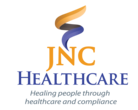
OIG Disclaimer [Healthcare Compliance Tips]



Abuse [Healthcare Compliance Tips]



OIG Disclaimer [Healthcare Compliance Tips]



Abuse [Healthcare Compliance Tips]
Fraud [Healthcare Compliance Tips]


Reflect on the definition of fraud and share the examples with your team.
Now after hearing the OIG disclaimer in our previous tip, let’s go further into the definition of fraud.
According to Medicare, fraud is defined as:
- ”Knowingly submitting false statements or making misrepresentations of fact to obtain a federal health care payment for which no entitlement would otherwise exist;
- Knowingly soliciting, paying, and/or accepting remuneration to induce or reward referrals for items or services reimbursed by Federal health care programs; or
- Making prohibited referrals for certain designated health services.”
What does fraud look like? The following are some common examples of what is considered fraudulent activity:
- Billing Medicare for appointments the patient fail to keep.
- Knowingly billing for services at a level of complexity higher than services actually provided or documented in the file.
- Knowingly billing for services not furnished, supplies not provided, or both, including falsifying records to show delivery of such items.
- Paying for referrals of Federal health care program beneficiaries.
- False or unnecessarily prescribing drugs not needed by the patient.
I shared the definitions and examples directly from Medicare’s website to show how important it is as professionals that we understand that one definition does not encompass fraud. There are many aspects that the government reviews to see if the investigation will hold up before calling it fraud.
Per the OIG, the difference between fraud and abuse is the individual’s intent; however, both have the same impact because they steal valuable resources from the healthcare industry.
Practices also run the risk of appearing on the exclusion list due to fraudulent activity or worse losing their professional licenses.
In the next tips, we will discuss abuse. Click the arrow button below to see the next tip.
**The opinions and observations from the group/author are not a promise to exempt your practice from fines and penalties. Research, modify, and tailor the advice to fit your specialty.









